Pausing to Check the Weather, a guest post by Tanita S. Davis
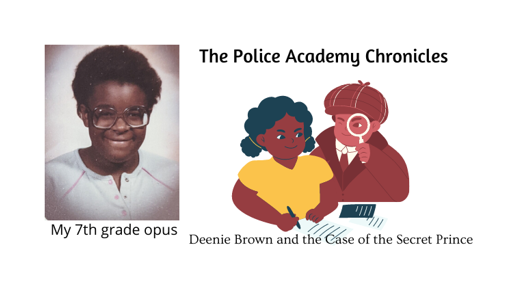
The first series I published – on binder paper, bristling with staples – was The Police Academy Chronicles. Protagonist Deenie Brown was Black, book-smart, and at fourteen, the youngest cadet in her police academy – which was apparently like high school, but with adults. Together with sidekick Danny (whose long, thick lashes did nothing to hide his utter lack of characterization), Deenie Brown’s adventures were legion, and heavily derivative of Encyclopedia Brown (and with the amount of cookie baking going on, Trixie Belden). No gangs, drugs, or violence, Deenie’s cases dealt with priceless art theft and missing princes (commonly found in every suburb) and ended with a loud “atta girl” from Danny and the proud gratitude of the community. These novellas paint a clear (and endearingly awful) picture of my writer’s mind between the ages of twelve to fifteen.
During this same period, I was frequently told I had “an attitude” in the way I interacted with adults. The object of adult speculation in the form of “teasing” about the number of kids I would have or how early I would marry, I was frequently asked by pediatricians – from the age of ten, as I recall – if I was sexually active. I was mortified when my seventh-grade tumbling teacher wouldn’t spot me one day because I was “too much of a big girl now” to necessitate that. Even as I saw myself as goofy and scattered, bookish and unsure, adults around me seemed increasingly able to see something in me which I hadn’t yet seen in myself.
ADVERTISEMENT
ADVERTISEMENT
In 2017 the Georgetown Law Center on Poverty and Inequality released a study detailing what they called ‘adultification bias,’ the idea of Black girls as less innocent and more adultlike than their white peers. The study revealed that even as young as five to nine years old, black girls are perceived as needing less nurturing, protection, comforting and care than white girls of the same age, as they’re considered more independent. This bias is strongest in girls ages ten – to – fourteen, which shapes ideas of innocence and experience. Until I read about this study, and the qualitative research conducted in 2019, I had no words for some of the experiences of my tweenhood. Like Deenie and many of my later teen characters, I was not particularly hip or worldly. Even as I leaned into the new requirements and abilities of young adulthood, I was still a child day-dreaming super sleuth adventures and solving imaginary crimes. Mine was not a graceful transition, and I went into teaching determined to grant girls like me more tools to make their liminal stage easier. All we needed, I reasoned, was a pause to check the weather before being expected to face the headwind on a new road.
Most of my first students had criminal records, social workers, parole officers, and a history of truancy. As a very junior teacher, I was to provide one-to-one tutoring and an educational approach that met them at their level, but which wasn’t insultingly infantilizing. With the supervisory support of the County’s independent study teacher, my little group home class struggled toward diplomas and GEDs. Seeking any enticement to engage them, I hit on reading aloud. My kids would work, and better, urge each other to work, in exchange for a story – despite adultification bias’s claim that they should have “outgrown” that long ago.
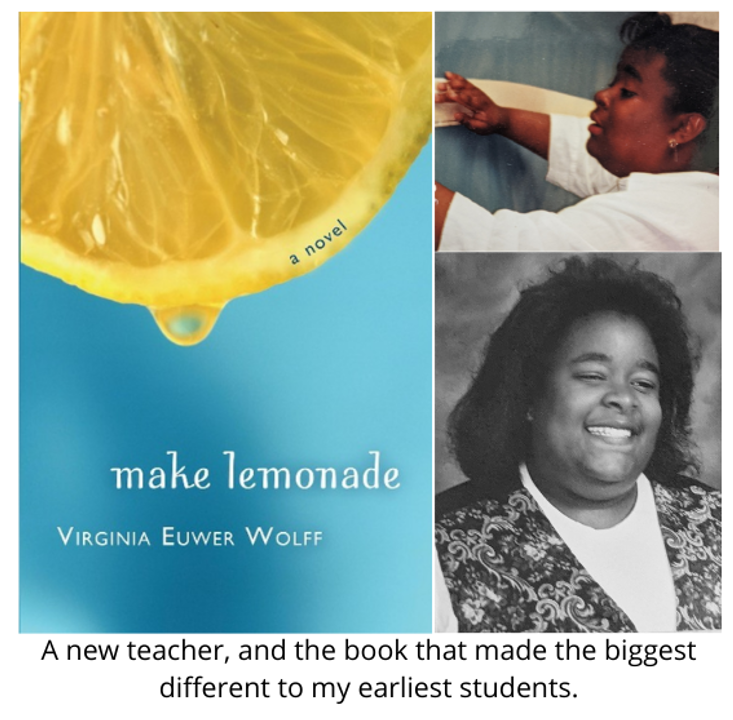
We began by reading Virginia Euwer Wolff’s Make Lemonade, the story of fourteen-year-old, college-bound LaVaughn, babysitting seventeen-year-old Jolly’s two small children. Resonating with the characters’ fears and intentions, my students listened fiercely as LaVaughn observed, judged, learned and transformed. With her, they were frustrated with, charmed by, and terrified for others. Within the pages of those blank verse poems, my students lived and breathed. The day we finished, my learners, who had listened in near reverent silence, refused to even consider the sequel, voting unanimously that we read it again. They seemed to need to re-immerse themselves in the moments and decisions that led the novel to the powerful hope in its conclusion.
Publishing stories for girls like me, girls who were tender inside, and dreamers, wasn’t as simple. As other Black authors published to well-deserved success, my editors grew disappointed with my work. “She needs to be edgier,” was the most common criticism of my characters. I was encouraged to depict characters with more “street smarts” whose lives were “grittier.” “Your characters are too innocent,” one editor told me bluntly. I couldn’t understand – what did “too” innocent mean? Isn’t every teen, merely by virtue of their age, innocent of a remarkable number of experiences? Despite criminal charges and court dates, my students had limited experience with a world which had already judged them as ‘knowing better.’ When an editor suggested I was more suited to write chapter books for early readers, I was shaken. Much like Nigerian author Chimamanda Adichie’s idea of the danger of a single story, I realized that much of publishing had, in essence, defaulted to another single story, that of poverty and pain, a Black girl on the brutal streets, bereft of innocence and old too soon…a story I wasn’t convinced that I was capable of telling.
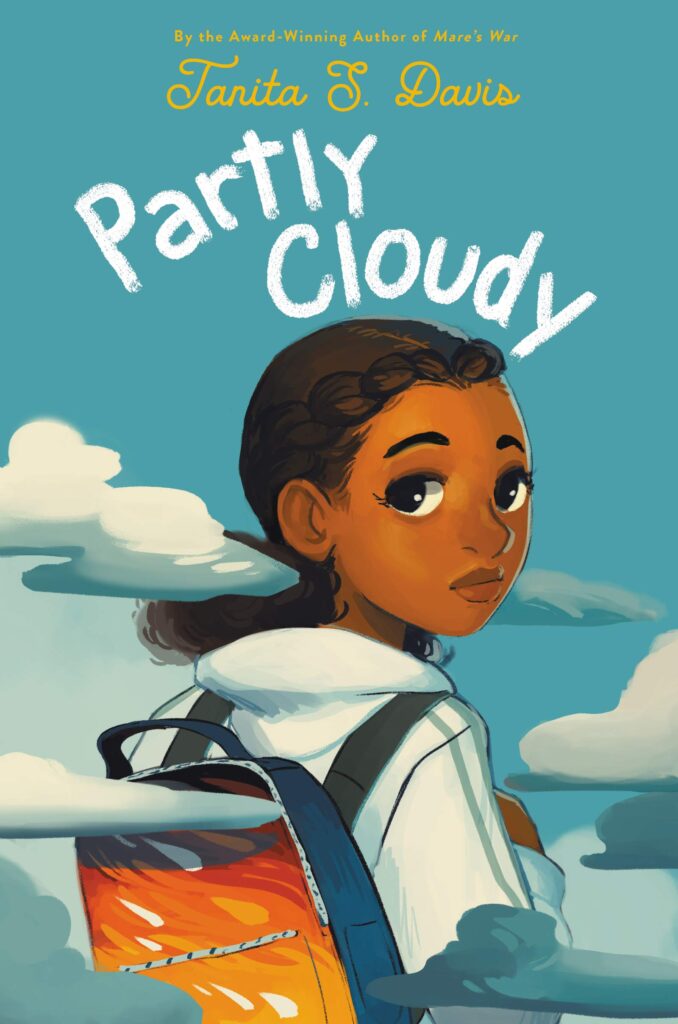
Still, I reconsidered Partly Cloudy, a book originally featuring a first-year college student, the unwilling subject of a viral video, making a cross-continental escape to her great-uncle’s house on the West Coast. In my rewrite, seventh-grader Madalyn arrives at Papa Lobo’s in a slightly more organized fashion, though she remains conflicted by the push-pull challenges and growth of interracial, intercultural friendships at her new school. How do we make friends with others raised to think and react differently than ourselves? How do we decide what has value, where we should put our energy, what is worth fighting for, and what is best allowed to fade? Junior high friendships can be fast-changing and painfully fraught. In Madalyn I wanted readers to feel nurtured by her relationships, and with her, take a moment to pause and process, to determine what friendships feel like, and to grow deliberately into the adulthood they’re so often assumed to have.
And what comes of such deliberation? Clarity. I see now that like Deenie, I wanted strongly to fix things, and restore what was broken or lost. Like Madalyn, I wanted to safely and honestly navigate friendships, to cut through distraction and find genuine connection. And like them both, I wasn’t gritty and street smart – I’m still not. I had to learn pragmatism and resilience, neither of which come easily, especially if you’re seen as “grown” and not in need of comfort or help.
I hope that this September we welcome tweens of all colors into our learning communities in the spirit of honoring what is within them. We can lend them all our nurture, protection, and comfort. And as Black girls pause among the books to check the weather, I hope we’ll be on hand to give them a loud “atta girl,” as they choose to open the door and step into the storm.
Meet the author

Tanita S. Davis is the award-winning author of six novels for middle grade and young adult readers, including Serena Says, Peas and Carrots, Happy Families, and Mare’s War, which was a Coretta Scott King Award Honor book and earned her a nomination for the NAACP Image Award. She grew up in California and was so chatty as a kid that her mother begged her to “just write it down.” Now she’s back in California, doing her best to keep writing it all down.
Website: www.tanitasdavis.com
Twitter: https://twitter.com/tanita_s_davis/
About Partly Cloudy
ADVERTISEMENT
ADVERTISEMENT
From award-winning author Tanita S. Davis comes a nuanced exploration of the microaggressions of middle school and a young Black girl named Madalyn who learns that being a good friend means dealing with the blue skies and the rain—and having the tough conversations on days that are partly cloudy. Perfect for fans of A Good Kind of Trouble and From the Desk of Zoe Washington.
Lightning couldn’t strike twice, could it? After a terrible year, Madalyn needs clear skies desperately. Moving in with her great-uncle, Papa Lobo, and switching to a new school is just the first step.
It’s not all rainbows and sunshine, though. Madalyn discovers she’s the only Black girl in her class, and while most of her classmates are friendly, assumptions lead to some serious storms.
Papa Lobo’s long-running feud with neighbor Mrs. Baylor brings wild weather of its own, and Madalyn wonders just how far things will go. But when fire threatens the community, Madalyn discovers that truly being neighborly means more than just staying on your side of the street— it means weathering tough conversations—and finding that together a family can pull through anything.
Award-winning author Tanita S. Davis shows us that life isn’t always clear, and that partly cloudy days still contain a bit of blue worth celebrating.
ISBN-13: 9780062937001
Publisher: HarperCollins Publishers
Publication date: 09/07/2021
Age Range: 8 – 12 Years
Filed under: Uncategorized
About Amanda MacGregor
Amanda MacGregor works in an elementary library, loves dogs, and can be found on Twitter @CiteSomething.
ADVERTISEMENT
ADVERTISEMENT
SLJ Blog Network
Name That LEGO Book Cover! (#53)
Cover Reveal and Q&A: The One and Only Googoosh with Azadeh Westergaard
K is in Trouble | Review
Fighting Public School Book Bans with the Civil Rights Act
ADVERTISEMENT




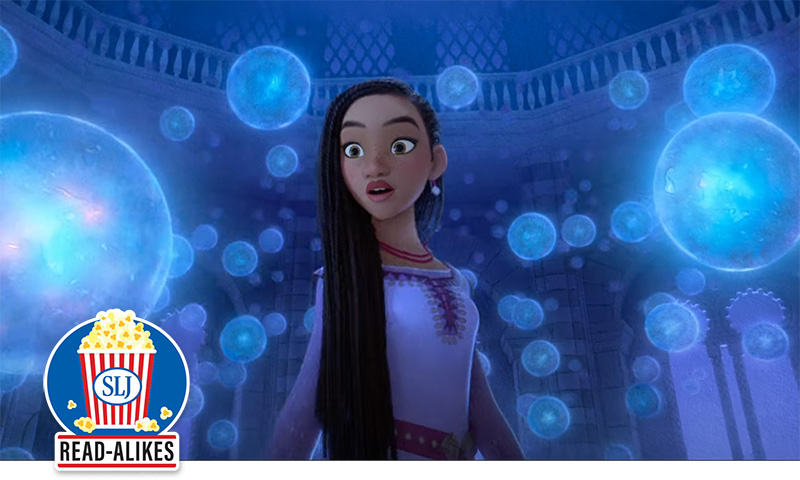

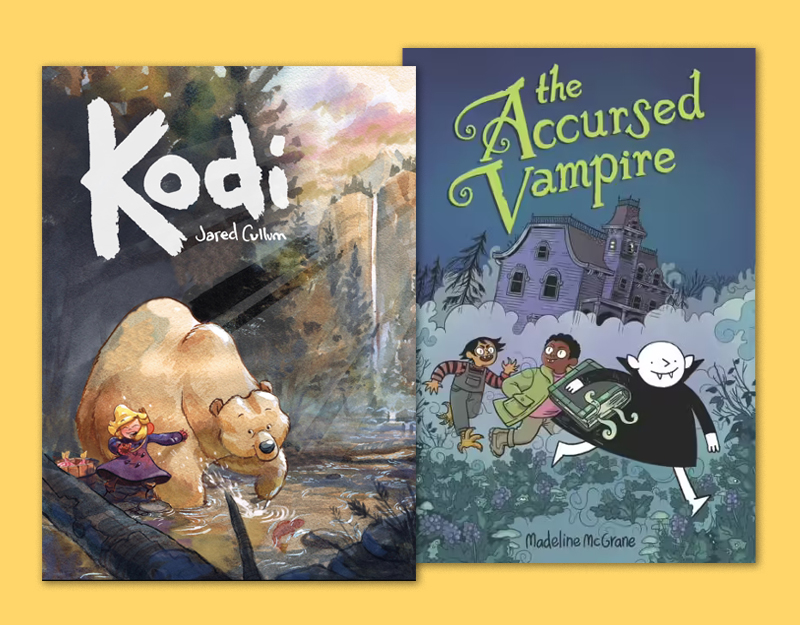
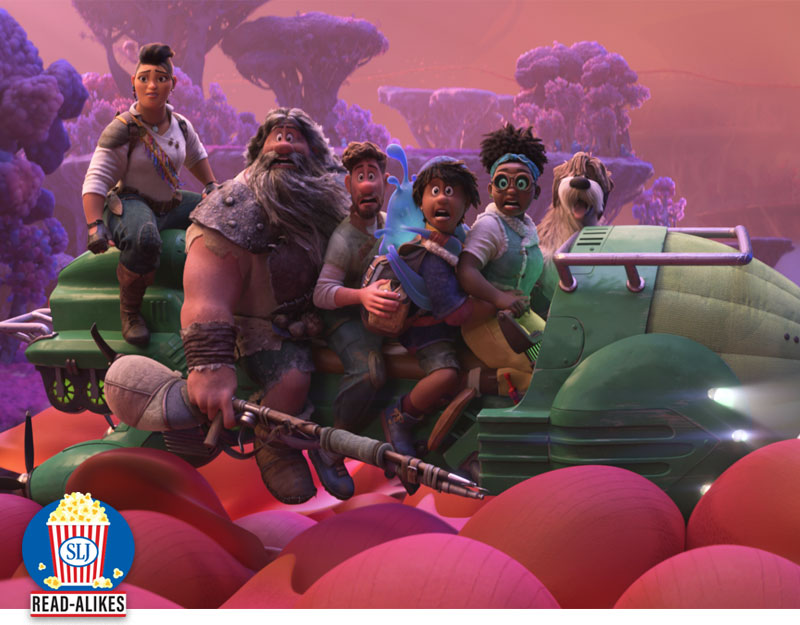
Wonderful write up! I laughed at the beginning using the clues, to guess that we are probably close to being of the same generation and read the same books as girls. I do have to thank you for giving me much food for thought. I’ve read a bit about the way we adultify African American girls – it was that way when I was young and you are right. It hasn’t change. We need to do better. I’m putting Partly Cloudy on my TBR List as well as my order list for my fall Elementary school purchases.
@Georgie Camacho: Always good to find another fan of Encyclopedia Brown (And, of course, Trixie). Hope you enjoy Partly Cloudy!
@Georgie Camacho: I think my first reply got eaten, but thank you! I hope you enjoy Partly Cloudy.